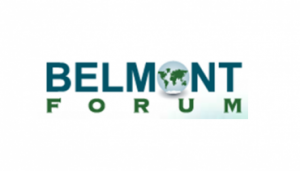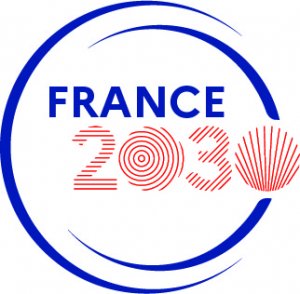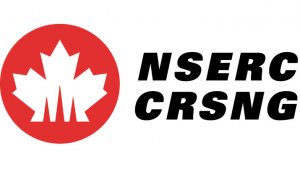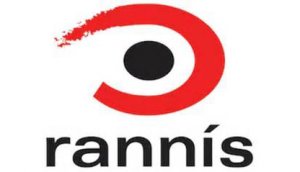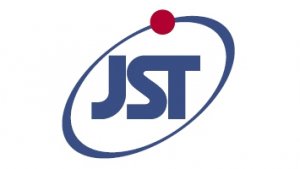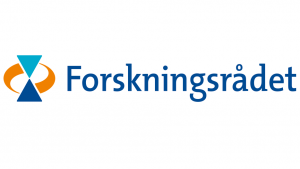Appel à projets internationaux "Résilience dans une région en mutation rapide, l'arctique"
This joint Belmont Forum CRA calls for co-developed and co-implemented proposals from integrated teams of natural and social scientists, and stakeholders to address key areas of arctic resilience understanding and action. This collaboration of academic and non-academic knowledge systems constitutes a transdisciplinary approach that will advance not only understanding of the fundamentals of arctic resilience but also spur action, inform decision-making, and translate into solutions for resilience. The term "stakeholder" is used here in its broadest possible sense, allowing for co-development of projects with partners from, but not limited to, civil society, government, industry, NGOs, and Indigenous organizations.
Background
The Arctic is changing fast: it is warming at twice the pace of the rest of the planet, sea ice is melting, permafrost is thawing, flora is changing, and both aquatic and terrestrial animals are altering their migratory patterns to adapt to the new conditions. The livelihoods and cultures of the four million arctic inhabitants, including some 400,000 Indigenous People, spread across eight nations are also changing. Arctic peoples have access to new technologies and are increasingly connected to the rest of the world. All these changes are shifting the dynamics of the unique human-Earth system that has developed over recent millennia in this harsh climate. While human activity outside the Arctic (e.g. carbon and other pollutant emissions) and resource exploitation for use by southern populations (e.g. oil extraction; mining, fisheries) is driving many of the arctic socio-ecological shifts, the consequences of these shifts extend far beyond the North. Arctic ice- albedo plays a central role in regulating Earth’s climate. A warmer Arctic changes regular airflow patterns over southern regions and may result in colder winters and stunted crop growth. Transformations in the arctic marine food-web structure have impacts that extend into commercial fisheries worldwide.
The natural variability, complexity, low population density and remoteness of many arctic regions make studying, monitoring, and understanding these changes difficult. Given the magnitude of these changes for arctic and non-arctic environments and societies alike, arctic science aims at understanding, responding, and adapting to accelerating change is a global priority.
For several decades, researchers have grappled with ways to monitor and understand the complex changes occurring in the Arctic. Realizing that many transformations are irreversible, the research focus has been shifting toward buffering or coping with climate change and improving the ability of ecosystems and peoples to respond and adapt to change, also known as resilience. Researchers and stakeholders are now working together, foregoing traditional compartmentalized research approaches. They are tackling the Arctic as one socio-ecological system (or system of systems), recognizing that people are inextricably linked to earth systems, and embracing Local and Indigenous Knowledge1 in their work. This paradigm shift and the need for research on seven interconnected elements of resilience: natural, social, financial, cultural, and human capitals; infrastructure; and knowledge is evidenced by the Arctic Council.
Elements of resilience
To enhance adaptive capacity, it is important to understand what processes are building (or eroding) each of the seven resilience elements.
- Arctic natural systems
- Human, social, and cultural elements of resilience (3 elements)
- Knowledge asset
- Financial capital
- Infrastructure
Call Objectives
This joint Belmont Forum CRA calls for co-developed and co-implemented proposals from integrated teams of natural and social scientists, and stakeholders to address key areas of arctic resilience understanding and action. This collaboration of academic and non-academic knowledge systems constitutes a transdisciplinary approach that will advance not only understanding of the fundamentals of arctic resilience but also spur action, inform decision-making, and translate into solutions for resilience. The term “stakeholder” is used here in its broadest possible sense, allowing for co-development of projects with partners from, but not limited to, civil society, government, industry, NGOs, and Indigenous organizations.
Project teams must be international in their composition and must draw off of support from minimum three organizations supporting this CRA from minimum three different countries. Please refer to the organizational annexes for more information about support available for proposed projects. Project team partners who are not eligible for funding from any of the participating funding organizations can participate in the research project at their own expense as additional partner. Please ensure that your project theme is compliant with funding specifications by contacting the listed Organizational Contact Points in the relevant organizational annex documents for this call.
Proposing consortia are required to identify and address at least two of the seven interconnected elements of resilience, as described above. The following examples are provided only as illustration of cross-thematic areas of interest:
- Example 1: The interrelationships among changing seasonal permafrost cover; maintenance and planning of infrastructure; regional transportation and human migration; community accessibility for local, subsistence, and private sector use; and municipal budgets.
- Example 2: Implications of increased access to reasonably priced, reliable, and high-speed broadband internet and cellular communications in formerly-remote or small communities. How might internet and smart phone technology influence learning, communications, and employment opportunities in the Arctic? How would broadband infrastructure impact arctic resilience?
- Example 3: Warming as a precursor for new health regimes. How will arctic government systems respond to advancing species and disease vectors from the South? What governance is in place to protect current arctic flora and fauna from invasive species and pollution that could arise from increasing tourism, shipping, extractive activities, or agriculture?
Reporting and Evaluation
All funded projects are expected to attend kick-off, mid-term and end-term meetings organized by the Arctic II Theme Program Office for discussions and dissemination. The funders may decide on clustering these meetings with others. Project leaders will also provide an annual integrated update on their project accomplishments, using the BFgo reporting interface. The consortium lead for each award will receive log-in credentials from BFgo to complete these reports, which are due each year on June 15th for the duration of the project. Additional reporting may be required by supporting funders for a given award and should be completed per the award terms and conditions with that organization.
Open Data
All proposed projects will require a data management plan. If needed, data management plan templates are available from the Belmont Forum website. The plan should include information about types of data, information, models, software, workflows and code, or other digital products being generated by the project. It should outline the accessible archives or other open repository where these products and accompanying metadata will be stored.
Belmont Forum Open Data Principles are intended to improve and promote the dissemination of knowledge, the access to the data and their reuse thereby improving the efficiency of scientific discovery and maximizing the return on research funding. The funded CRA Arctic II projects are expected to make their best efforts to ensure open access to data as soon as possible. Awarded projects will be checked for compliance to open data procedures at the mid-term and end-term valorization events using information provided to the BFgo reporting system.
Process and Timeline
The CRA Arctic II uses a one step process. Proposals must be written in English and submitted electronically via the Belmont Forum Grant Operations website by June 14, 2019, 23:59 UTC.
Proposals will be evaluated according to criteria of:
- Quality/Intellectual Merit,
- Fit to call objectives (including user engagement and societal/broader impacts),
- Personnel/Quality of the Consortium and Trans-disciplinarity, and
- Resources and Management.
A total of 10 funders from 10 countries have committed in total 7 M€ of cash and in-kind resources for this call: Canada, Denmark, France, Japan, Iceland, Netherlands, Norway, Russia, Sweden and USA.
This call aims to support medium-sized research projects with 3 to 4 years duration, with a recommended budget of up to 1.5 M€. Note that some contributions are in-kind. See organizational annexes for specific constraints and requirements of your funding organization(s).
Projects are expected to start in late 2019 or early 2020.
